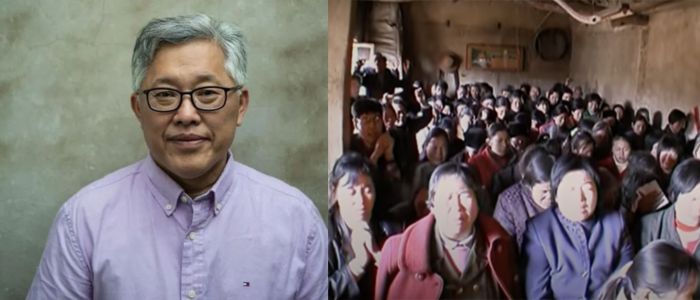According to rights supporters, the arrests represent one of the most significant church crackdowns faced in China in decades. The Communist Party of China (CPC), which officially endorses atheism, keeps strict control over religion in China, and believers are often encouraged, and quite often pressured, to go to government-recognized churches with government-appointed pastors who are required not to deviate from the Communist Party's political tenets.
At this time, it is unclear if the church leaders are formally charged. The Chinese government has not yet commented on this arrest or the reported crackdown.
Concerns About Attacks on Religious Freedom in China
Zion Church, one of the largest underground congregations in China, called the latest mass arrests "systematic persecution," and a "public challenge to the international community," while stating that a crackdown on a religious group's freedom of belief is a direct assault on the right to practice faith without political control and without interference of the state.
U.S. Secretary of State Marco Rubio released a statement on Sunday to condemn the detentions and called on China to release the religious leaders detained immediately. He noted that the crackdown "demonstrates once again how the Chinese Communist Party engages in a hostile manner toward Christians who refuse to allow the Party to interfere in their faith and who choose to worship in unregistered house churches."
The arrests have injected yet another layer of stress into an already tense relationship between the U.S. and China, where tensions over trade, technology, and global influence have been on the rise. Recent disputes over tariffs and export controls have added additional strain to the economic relationship, and this religious issue has the potential to further complicate this fragile relationship.
There are also growing concerns about whether the planned summit between President Donald Trump and Chinese President Xi Jinping, which is expected to occur later this month in South Korea, will follow through as planned.
The Story of Zion Church and Pastor Jin Mingri
Zion Church was founded in 2007 by Pastor Jin Mingri and began with a small group of 20 believers meeting in a home. Over the years, it grew into a large underground network with approximately 10,000 congregants in over 40 cities, making it one of the biggest and most prominent unregistered Chinese churches.
Despite multiple instances of government pressure, Zion Church has been successful in remaining independent of the state-controlled religious system.
In September 2018, the authorities officially banned Zion church after the church refused an order to install government video surveillance cameras inside its property in Beijing. After the ban was enacted, some of the church leadership were briefly detained, and many local congregations were implicated in a forced cessation of activity.
Jin's family soon fled the safety of the United States, but Jin remained in China to fulfill his role in leading his congregation. Sources say that the Chinese security forces have prohibited him from leaving the country.
The church continued meeting in small groups and conducting online sermons as it faced increasing restrictions as a new congregation. But that also sent a message to the authorities and made them a target again in what observers described as a coordinated nationwide action against "unregistered" religious practices.
ChinaAid's reports indicate that these have been the "largest and most coordinated wave of persecution" against Christians in forty years, according to a rights group.
The group's founder, Bob Fu, described these as ''as dark as the 1980s," when churches began to appear again after decades of repression from the Cultural Revolution, with repression, where more civil unrest and oppression created extreme restrictions on religious activity.
"This operation has returned to hard-handed means out for cities and police agencies," said Mr. Fu. "I encourage people of good conscience to unify and denounce this violation of human rights and religious freedoms.''
In a poignant address to her followers, Liu Chunli, Pastor Jin's wife, opened her heart following her husband's arrest. "My heart is a bitter mix of shock, grief, and sorrow, worry, righteous anger, and fear." She instead said that Jin was accused of doing only what "any faithful pastor would do," describing her husband as innocent and righteous, representing him before his congregation.
Liu further lamented that her family's hope to reunite with Jin after years of being apart was dashed yet again. Nevertheless, Liu expressed her faith and continues to asks for prayers for her husband and for all who are detained church members.
Crying for Freedom and Faith Amid Pressure
After the raids, several unregistered house churches across China have been reporting to Christians, asking for prayers for their rights, beliefs, and their worship. Sean Long, a pastor of a USA based church called Zion Church, explained that Jin always anticipated that the time would come.
Long recently recalled asking Jin on a video call what he thought the church leaders would do if they were arrested. Jin calmly said that persecution was possible for anyone who does not compromise what they believe. Long explained that since Xi Jinping's administration in 2012, Beijing has tightened control over religious organization, especially organizations that operate independently of the state.
When Xi attended a national convention on religion in 2016, he reiterated the need for religious organizations to "love your country, protect national unity, and serve the interests of the Chinese nation."
Despite the policies, churches such as Zion Church multiplied among underground house churches because they offered worshippers an option moving away from state-sanctioned spirituality. What the events illustrate is how fragile that "freedom" can be— that freedom is simply a relationship and that relationship is a tactile reenactment in our practice of faith when it acts or is extinguished.
World

US Urges China to Release Detained Underground Church Leaders

The U.S. has urged China to free the thirty leaders of one of the country's most prominent underground church movements following reports that they had been detained during raids that swept through multiple cities, some in the early morning hours. In addition to the church's forty pastors, among the thirty or more detained was Jin Mingri, the founder of Zion Church, who was arrested during a search of his apartment just after dawn on Saturday.















